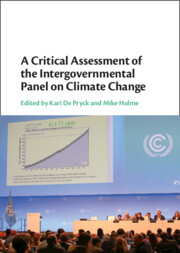The Intergovernmental Panel on Climate Change (IPCC) project is simultaneously indispensable and near impossible. Established over 30 years ago by governments to assess policy relevant knowledge, the IPCC is an essential bridge from science to policymaking. It is built on three emergent principles: holding the line between policy relevance and prescription, enlisting geographically diverse participants, and evolving a thicket of procedures to guard scientific credibility. Over three decades, its carefully calibrated and synthetic statements have provided the moorings for intergovernmental action.
Yet, in many ways, this is an impossible project and getting increasingly so. Three decades and counting into global climate change deliberations, the balance of global attention – and therefore the IPCC’s role – has shifted. Instead of nailing down scientific certainty – is climate change real and how do we know? – the IPCC is now charged with informing concrete policy actions in diverse national contexts – how do we act, who acts and how fast? Yet, with its current construct, the IPCC project faces challenges in answering this call.
Tasked with informing fraught global negotiations, seemingly simple data tasks like presenting greenhouse gas emission trends are freighted with political meaning. Should emissions be sliced by regions, as conventionally done, or by income categories that shine a spotlight on political negotiation categories like ‘developed’ and ‘developing’ countries? Does it matter that a ton of emissions contributes far more to human welfare in poorer rather than richer countries, and how can this be represented in scientific assessments? These questions very nearly derailed an ‘approval plenary’ I was privileged to participate in as an author.
North–South politics also inflect the knowledge industry that underpins the IPCC. Research funds, editorial control of journals and subliminal signals of research authority disproportionately rest in North America and Western Europe. When not only the robustness of the answer matters, but also the way in which the question is framed, this imbalance threatens the perceived credibility of the IPCC.
Not least, the recognition that local policy and political context matters for how knowledge is authorised becomes a serious challenge for the IPCC’s clipped synthesis-driven style of formulating and communicating knowledge. Informing policymaking for polities that have domestic consensus on the existential nature of the climate crisis is very different from finding ways to smuggle policies through politically divided contexts, or seeking ‘co-benefits’ where other concerns dominate. Advising well-functioning states on climate resilience is entirely different to informing those that already struggle to keep the lights on. The tried-and-tested high-level synthesis approach of the IPCC is ill-equipped to equally inform diverse national and local contexts. Yet, the global community cannot give up on trying to find a way through such challenges, and the IPCC remains our best chance of doing so.
For this reason, this new book – A Critical Assessment of the Intergovernmental Panel on Climate Change – is enormously important and, because of the IPCC’s turn to solutions, extremely timely. Collectively, the chapters in this volume interrogate not only what the IPCC has achieved, but also how it has done so. This opens the door to exploring whether and how established IPCC objectives, norms and practices are up to the task of informing future policymaking. The 26 concise, yet substantive, chapters are organised around evocative keywords, grouped into five categories, which have been carefully chosen to cover both foundational IPCC ideas like ‘peer review’ and ‘uncertainty’, and probe emergent fault lines such as ‘policy relevance and neutrality’ and ‘boundary objects’.
The editors bring both empirical and conceptual richness to this task. I have known Kari De Pryck through her meticulous work observing IPCC processes and interviewing authors as part of a pioneering multi-year research project. Through his work, Mike Hulme has unflinchingly shone a spotlight on how differing values and perspectives are central to Why We Disagree About Climate Change? – a book that has been foundational to my understanding of the topic. The contributing authors come from diverse disciplinary backgrounds, and draw on experience of either participating in or studying the IPCC. That the geographical mix of authors is perhaps a bit skewed to the Global North, mirroring the IPCC itself, is an indication of the deep structural nature of asymmetries in the knowledge economy.
At a moment when we still need the IPCC, but also need it to be better, this book delivers on its promise of a ‘critical assessment’. And it does not pull its punches in doing so: diversity is described as a ‘box-checking exercise’ and the IPCC’s response to past controversies is termed procedural and adaptive rather than reflexive and transformational.
But the book moves well beyond critique, to offer ideas that could help shake the existing cognitive lock-in on the role and functioning of this seminal knowledge institution. For example, prioritising relevance may require the IPCC to push the boundaries of its traditional emphasis on neutrality: the IPCC may need to seek rather than avoid hot potatoes. While the authors don’t name these, good examples might be allocation of future carbon budgets and the treatment of fossil fuel subsidies. Even more ambitious, various authors suggest the IPCC should focus less on being a ‘maker of facts’, and instead embrace the diversity within its ranks to facilitate dialogue and generate shared meaning. These suggestions go beyond incremental shifts, and will require a reorientation of hallowed IPCC norms and procedures. They offer the prospect of updating the IPCC to meet the changing requirements of international cooperation and national and local policymaking.
The IPCC remains necessary and salient. But it also requires a critical perspective and the injection of fresh thinking. This book, ably edited by Kari De Pryck and Mike Hulme, offers both.

